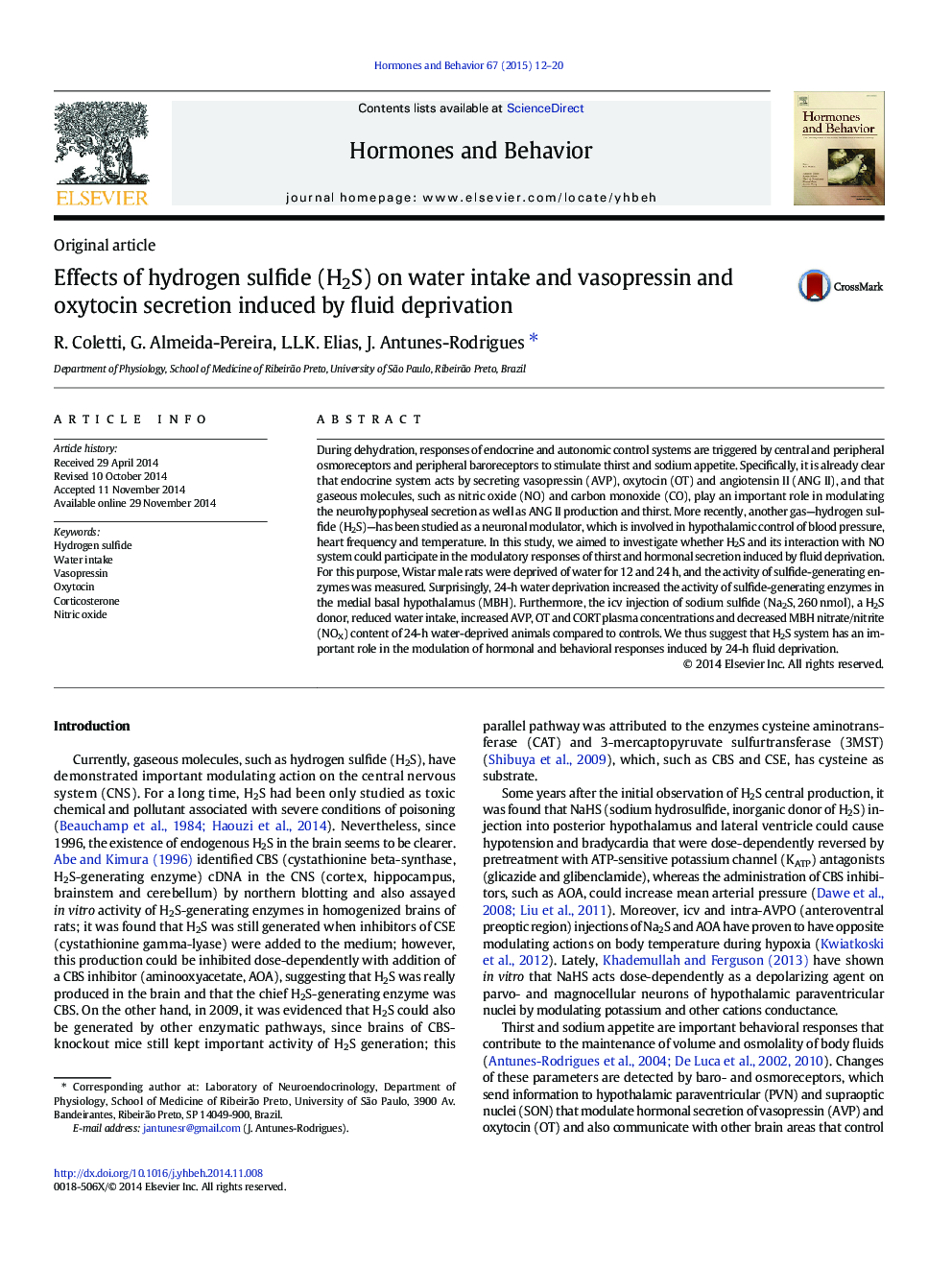| کد مقاله | کد نشریه | سال انتشار | مقاله انگلیسی | نسخه تمام متن |
|---|---|---|---|---|
| 322682 | 540209 | 2015 | 9 صفحه PDF | دانلود رایگان |

• H2S plays a role in behavioral and neuroendocrine responses induced by water deprivation (WD).
• WD increases hypothalamic activity of sulfide-generating enzymes.
• WD-induced increase of hypothalamic NO content is reversed by Na2S administration.
• WD-induced increase of plasma AVP and OT level is enhanced by Na2S administration.
• WD-induced water intake is decreased by Na2S administration.
During dehydration, responses of endocrine and autonomic control systems are triggered by central and peripheral osmoreceptors and peripheral baroreceptors to stimulate thirst and sodium appetite. Specifically, it is already clear that endocrine system acts by secreting vasopressin (AVP), oxytocin (OT) and angiotensin II (ANG II), and that gaseous molecules, such as nitric oxide (NO) and carbon monoxide (CO), play an important role in modulating the neurohypophyseal secretion as well as ANG II production and thirst. More recently, another gas—hydrogen sulfide (H2S)—has been studied as a neuronal modulator, which is involved in hypothalamic control of blood pressure, heart frequency and temperature. In this study, we aimed to investigate whether H2S and its interaction with NO system could participate in the modulatory responses of thirst and hormonal secretion induced by fluid deprivation. For this purpose, Wistar male rats were deprived of water for 12 and 24 h, and the activity of sulfide-generating enzymes was measured. Surprisingly, 24-h water deprivation increased the activity of sulfide-generating enzymes in the medial basal hypothalamus (MBH). Furthermore, the icv injection of sodium sulfide (Na2S, 260 nmol), a H2S donor, reduced water intake, increased AVP, OT and CORT plasma concentrations and decreased MBH nitrate/nitrite (NOX) content of 24-h water-deprived animals compared to controls. We thus suggest that H2S system has an important role in the modulation of hormonal and behavioral responses induced by 24-h fluid deprivation.
Journal: Hormones and Behavior - Volume 67, January 2015, Pages 12–20